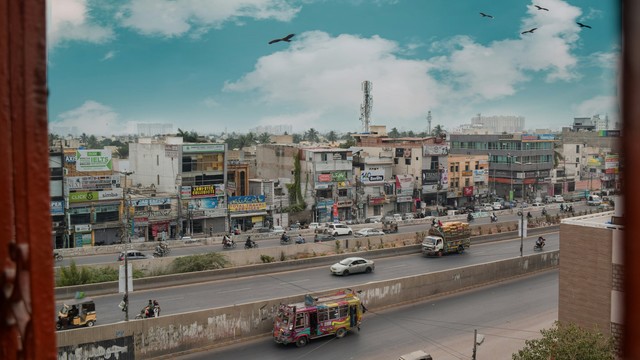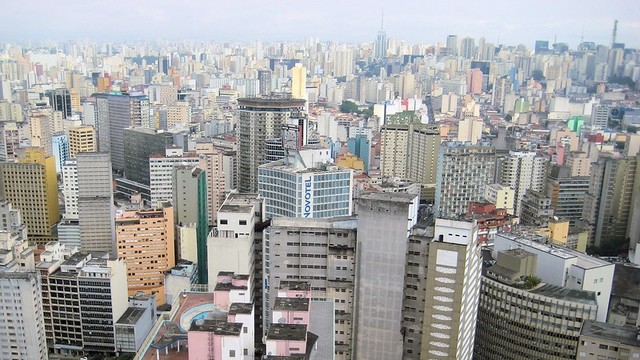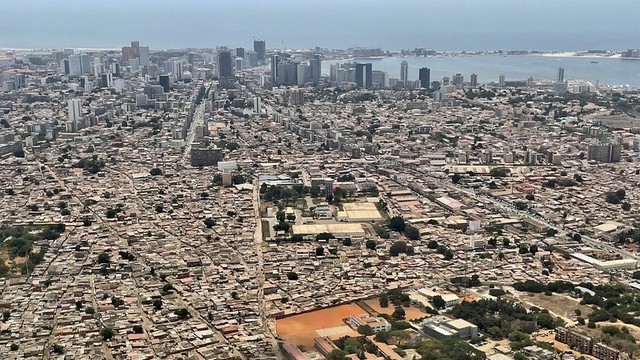Locally-led housing action needed to accelerate the UN’s urban SDG
Adequate housing sounds like a reasonable enough aspiration but our bloggers describe how the importance of local knowledge, and the power of grassroots organisations and local governments, are essential to translate it into positive action towards that goal.



Informal settlements in Belo Horizonte, Brazil (Photo: Nereu Jr/ WRI Brasil, via Flickr, CC BY-NC-SA 2.0)
Global progress towards the so-called ‘urban’ Sustainable Development Goal (SDG 11) has stagnated, specifically in relation to the critical target 11.1: ‘By 2030, ensure access for all to adequate, safe and affordable housing and basic services and upgrade slums'.
According to the latest SDG 11 synthesis report 2023 (PDF), the number of people living in informal settlements is growing, the proportion of the urban population in inadequate housing continues to grow, and children are particularly at risk of being marginalised, compromising their future.
In this context, there is a growing network of actors calling for bottom-up housing action to be prioritised as a critical strategy to address this crisis in ways that respond to local needs and aspirations. Their efforts point not only to making sure that national housing policies and programmes work at the local level, but even more crucially, at recognising how locally-led efforts are providing practical ways to advance and expand the right to adequate housing.
Together, civil society groups, grassroots community organisations, and local governments – in collaboration with other government levels – are mobilising diverse housing efforts that are crucial to accelerating the localisation of SDG 11.
Three key strategies
1. Recognition
Local action, through a range of initiatives, instruments, innovations and partnerships, can advance the recognition of the right to housing of those who have been systematically discriminated from housing systems, by acknowledging existing informal housing efforts and community-led processes of knowledge.
2. Protection
Local action can secure the protection of housing entitlements, safeguarding residents’ rights by providing adequate market regulations, incentives and frameworks, enabling diverse forms of tenure, and acting against forced evictions and housing rights violations.
3. Fulfilment
And finally, local action is critical for fulfilling housing rights – enabling and directly providing social housing, as well as creating the conditions for supporting community-led housing initiatives, and enabling informal settlement upgrading.
As the United Nations High-level Political Forum (HLPF) 2023 takes place – reviewing among other goals the progress of SDG 11 – IIED has joined forces with United Cities and Local Governments (UCLG) and The Bartlett Development Planning Unit (DPU) of University College London, to contribute to the 7th report, ‘Towards the localisation of the SDGs’.
Specifically, as part of our housing justice work, we contributed to this report with a chapter focused on SDG target 11.1, entitled ‘Housing and basic services from below: How local and regional governments are advancing the right to adequate housing' (PDF).
In this paper, we review a multiplicity of experiences that illustrate how local and regional governments (LRGs), in collaboration with grassroots groups and national governments, are contributing and playing a key role in the achievement of this SDG target.
Local experiences on a global scale
The range of practices being mobilised to recognise, protect and fulfil the right to adequate housing and basic services is extremely wide.
From efforts to recognise community-led data from informal settlements in Nairobi or Harare, to monitoring platforms for housing conditions and evictions in Montevideo or Seoul; from regulations that set affordable housing quotas in Barcelona (Spain) or Munich (Germany), to incentives to socio-economically diverse housing projects in Renca (Chile) and Mexico City...
From regulations in rental markets to protect housing rights in Afadzato South District (Ghana), to co-produced simplified sewerage solutions in Dar es Salaam; from extensive public housing stock in Vienna, to reconstruction programmes in Iztapalapa (Mexico City); from co-housing projects developed by feminist and LGBTQ+ groups in Montevideo (Uruguay) or London (UK), to comprehensive assistance programmes for migrants in Medellin (Colombia) or Sfax (Tunisia); from the support to self-management housing initiatives in São Paulo (Brazil), to community land trusts in Liverpool (UK), San Juan (Puerto Rico) or Rio de Janeiro (Brazil); and from a city-wide, people-led slum upgrading programme in Nakhon Sawan (Thailand), to state-level tenancy regularisation in Odisha (India).
| LRG pathway to SDG target 11.1 | Kinds of experiences and instruments |
|---|---|
| Local strategies for the respect and recognition of housing rights |
|
| Local strategies for the protection of housing rights |
|
| Local strategies for the fulfilment of housing rights |
|
Although this range of experiences gives a sense of the important and diverse efforts that are taking place at the local level, they also speak of the need to ensure the right conditions for their development in order to reverse the stagnation of the urban SDG.
These conditions include:
- Promoting enabling institutional environments, with effective decentralisation and multi-level coordination
- Securing and diversifying the available resources, as without the appropriate public resources, any local effort to localise SDG 11.1 will fall short
- Renewing and strengthening local capacities, including addressing data and knowledge gaps; and
- Crucially, allowing democratic and meaningful citizen engagement in the localisation of housing goals.
To realise the potential for continuing, fostering, expanding and sustaining these local efforts requires support, political commitment and effective responses from actors across all levels of governance.
In the context of the implementation of the SDGs, we need nation-states and the multilateral system to recognise that the housing crisis will only be addressed if local and regional governments, as well as civil society actors, are meaningfully included in global deliberations and supported in local actions.
The report (PDF) on the contribution of LRGs for SDG target 11.1 was launched on 13 July 2023 as part of LRGs Day convened by the Global Taskforce of LRGs at HLPF 2023.
Its content was also extensively discussed at the gathering that took place during the latest International Social Housing Festival in Barcelona (June 2023), where a network of actors working towards this agenda organised a session called ‘Housing policies from below: local co-production strategies for housing justice’. The event and participatory workshop were collectively led by IIED, CIDEU, the Global Platform for the Right to the City, Habitat International Coalition (HIC), Observatory DESC, and UCLG.
The findings of this report will be also discussed in a forthcoming event co-organised by IIED and the government of Chile, alongside Pathfinders, HIC, and UCLG, that takes place on 19 July at the HLPF, ‘Housing and equitable cities: bolstering local action for the implementation of SDG 11.’



